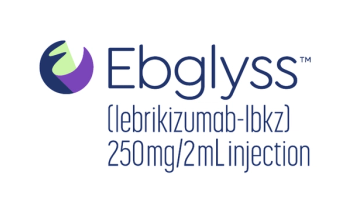
- MHE August 2022
- Volume 32
- Issue 8
2022 Pharmacy Survey Results: Aduhelm | Part 5
The respondents were almost evenly split on whether it was a mistake for the FDA to approve Aduhelm, but a large majority agreed that CMS made the right decision to restrict Medicare coverage to those enrolled in clinical trials.
Fifth of six parts
The FDA’s decision last to approve Aduhelm (aducanumab), a treatment drug for Alzheimer’s disease, is among the most controversial approval decisions in recent memory. Members of an outside advisory committee resigned in protest. Members of Congress launched an investigation into the decision.
The controversy surrounding the drug has several, interconnected plotlines. But one of the main ones is whether the evidence from two critical clinical trials supporting approval showed that the drug improved cognition. A related issue is the FDA relying on use of
The defenders of Aduhelm and the FDA’s approval of the drug say that the amyloid plaque is a legitimate marker for improved cognition. Lack of effective treatments for Alzheimer’s was another reason to forge ahead with approval, they say.
The respondents to our survey were just about split on the question of whether the FDA make the right decision when it approved Aduhelm. Just under half (46%) of the roughly 950 respondents indicated that they thought it was a mistake that the FDA approved the drug, compared with 41% who indicated that the FDA decision was not a mistake (13% had no opinion).
An sizable majority (62%) indicated that the Centers for Medicare and Medicaid Services (CMS) made the right decision when it restricted coverage of the drug to people who are enrolled in a clinical trial. The agency subsequently loosened the rules for which trials would be eligible but stuck with its proposal to require people to be enrolled.
Aduhelm was approved by way of the FDA’s accelerated approval process that lowers the standards for approval but conditions the approval upon completion of confirmatory clinical trials. However, in many cases those trials are not done.
A large majority (64%) of the respondents to our survey agreed that the FDA should strengthen the rules so those post-approval studies are done in a timely manner.
Articles in this issue
over 3 years ago
The Latest on CAR-T Therapyover 3 years ago
The 340B Program is at a Crossroadsover 3 years ago
2022 Pharmacy Survey Results: PBMs | Part 6over 3 years ago
How Employers, Insurers are Coping With Abortion After Dobbsover 3 years ago
Telehealth Abortion After Dobbsover 3 years ago
2022 Pharmacy Survey Results: PrEP and Wegovy | Part 4over 3 years ago
2022 Pharmacy Survey Results: Biosimilars | Part 3over 3 years ago
The Private Equity Bet on Healthcareover 3 years ago
2022 Pharmacy Survey Results: Drug Prices | Part 2over 3 years ago
2022 Pharmacy Survey Results: COVID-19 | Part 1Newsletter
Get the latest industry news, event updates, and more from Managed healthcare Executive.























